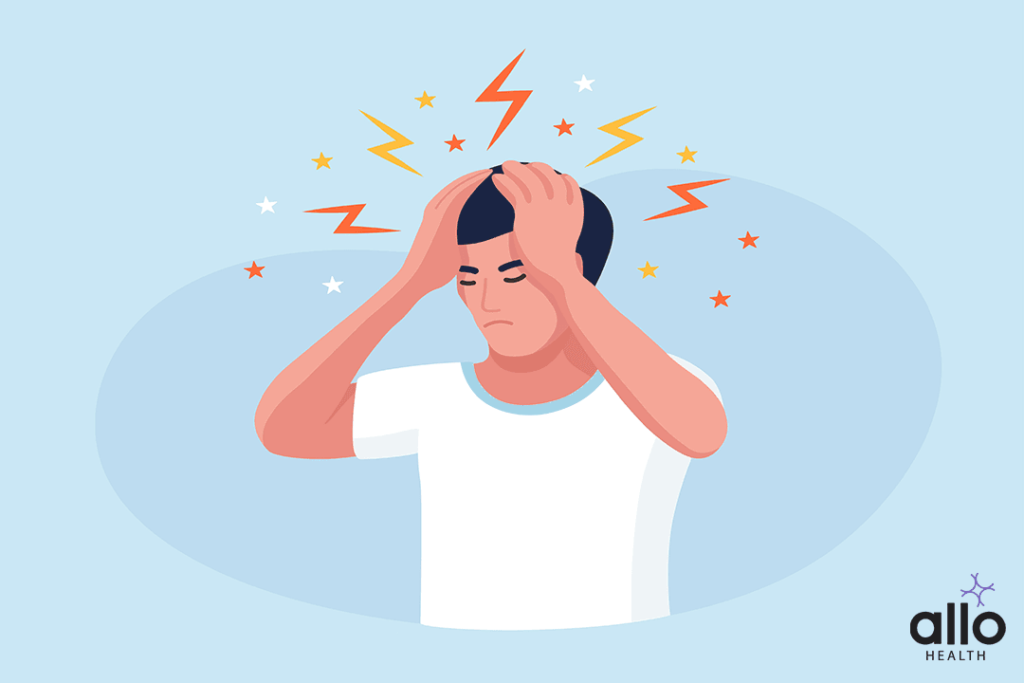Premature Ejaculation Complications

Allo Health is dedicated to personalized well-being, offering support and trusted information tailored to individual health goals. The platform emphasizes human-generated content, led by a distinguished medical team of experts, including physicians and sexual health specialists. Their commitment to credibility involves rigorous fact-checking, authoritative research, and continuous updates to ensure accurate, up-to-date information. Allo Health's unique approach goes beyond conventional platforms, providing expert-led insights and a continuous commitment to excellence, with user feedback playing a crucial role in shaping the platform's authoritative voice.

A Psychotherapist with Clinical specialization, working for over seven years now. Areas of specialization range from Anxiety-related disorders, Mood-related disorders, Personality disorders, Sexual dysfunctions & other mental health issues.
Why This Was Upated?
Our experts continually monitor the health and wellness space, and we update our articles when new information became available.
Updated on 17 January, 2024
- Article was updated as part of our commitment to diversity, equity, and inclusion.

"The following blog article provides general information and insights on various topics. However, it is important to note that the information presented is not intended as professional advice in any specific field or area. The content of this blog is for general educational and informational purposes only.
Book consultation
The content should not be interpreted as endorsement, recommendation, or guarantee of any product, service, or information mentioned. Readers are solely responsible for the decisions and actions they take based on the information provided in this blog. It is essential to exercise individual judgment, critical thinking, and personal responsibility when applying or implementing any information or suggestions discussed in the blog."
Premature ejaculation or rapid ejaculation is a fairly common sexual disorder, however, due to the stigma associated with it, many hesitate to seek professional help. Unfortunately, sexual dysfunctions such as PE can have a negative impact on sexual performance and sexual intercourse – for you and your sexual partner(s). There are a variety of complications or adverse effects that be linked to Premature ejaculation which can affect sexual function.
Premature Ejaculation Complications
While premature ejaculation isn?t dangerous to health, it can cause various psychological and physical complications – impacting sexual excitement, sexual performance and sexual satisfaction. These include:
Screening Call with our in-house expert
Understand your concerns better, talk to sexual health expert directly.
Chronic stress
The increase of stress levels aren’t good for either physical or mental health. Stress can only worsen PE symptoms by increasing anxiety levels, causing headaches, leading to bad eating habits and disturbed sleep schedules – all of which can impact your sexual performance.
Interpersonal concerns
As common with sexual concerns, there is a lot of miscommunication and assumptions made when sexual health experts aren’t consulted. Individuals and their partners are frustrated with their situation and often lash out at each other whether through blame or embarrassment.
Body Image and insecurity concerns
Due to the pressure placed of sexuality and sexual intercourse and performance, many develop a sense of insecurity when they are unable to satisfy their partners. Performance anxiety is common among those that experience PE symptoms, and so body image concerns seem to pop up. Individuals start to feel ashamed and embarrassed about their symptoms and develop mental stress.
Mental health concerns or psychological factors
Sexual disorders can have a significant impact on mental health. Those that experience symptoms of PE can experience mental health conditions such as depression and anxiety.
Sexual Dysfunctions or concerns
Premature ejaculation can lead to sexual dysfunctions such as:
- Erectile dysfunction
- Low sexual desire or sex drive
- Performance anxiety
- Lack of sexual satisfaction
Fertility Concerns
Due to the fact that the primary symptom of PE is the inability have voluntary control over ejaculation, oftentimes fertility can be a concern. For conception to take place, ejaculation has to take place during vaginal penetration, but PE can cause early ejaculation – oftentimes before penetration. This can led to unsuccessful pregnancy attempts
Can Premature Ejaculation Be Treated?
Yes, premature ejaculation is a common and treatable condition. The goal of treatment to help the individual to learn climax control and help improve sexual excitement and sexual satisfaction. There are different ways that PE can be treated to help with voluntary control of ejaculation.
- Medicative intervention through Topical Anaesthetics
- Oral Medications such as phosphodiesterase-5 inhibitors (PDE-5) or Selective Serotonin Reuptake Inhibitors (SSRIs)
- Self-Help Techniques such as the stop-start method or squeeze technique
- Psychological Therapy, psychosexual therapy or behavioral therapy learning through a mental health professional
- Treatment of medical conditions such as hypertension (high blood pressure), diabetes, etc.
- Treatment of abnormal neurotransmitter levels such as serotonin levels
- Treatment of abnormal hormone levels such as testosterone
- Treatment of Erectile dysfunction and other sexual disorders
A physical examination is not required for diagnosing Premature Ejaculation or rapid ejaculation. We encourage you to not experience premature ejaculation symptoms silently – the complications and the negative impact on sexual function can be helped. Medicative intervention and psychological therapy are greatly beneficial in improving PE symptoms and sexual satisfaction.
Sexual health is as important as physical and mental health. In most cases, one consultation can go a long way. Personalised, discreet, and judgement-free treatment at your fingertips – book an online consultation with one of Allo?s leading experts.







































